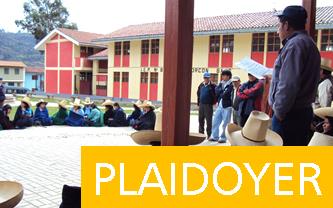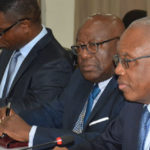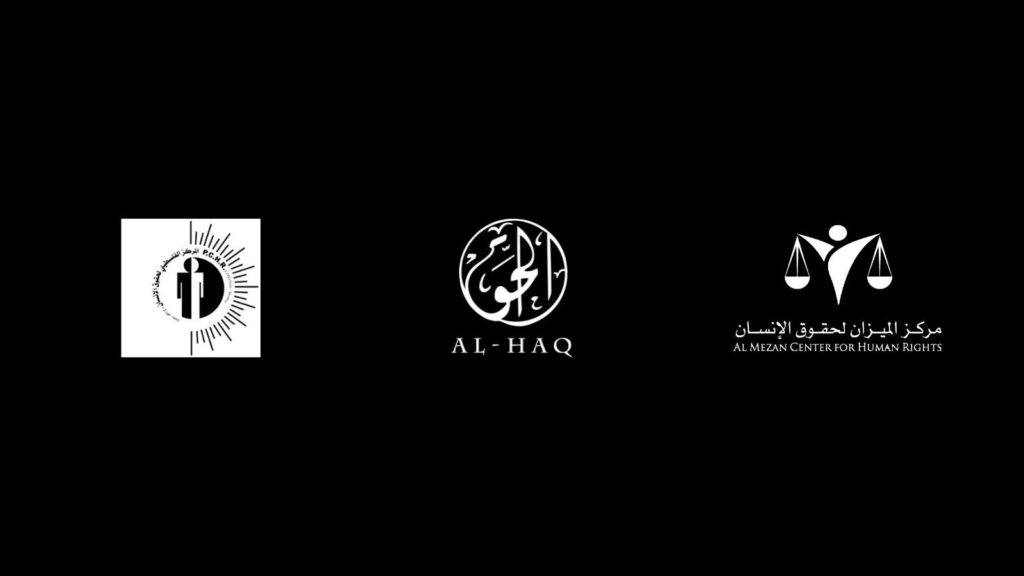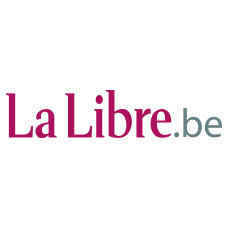As the European Foreign Affairs Ministers are due to discuss the Democratic Republic of Congo (DRC) at the next Foreign Affairs Council meeting on 6 March 2017, the European Network for Central Africa (EurAc) strongly believes that a second round of European Union (EU) targeted sanctions (travel ban and asset freeze) against senior political and security actors, closer to the inner circle of President Joseph Kabila and responsible for human rights abuse as well as for the violent crackdown on dissident voices and for undermining the democratic process, would be useful to increase the pressure on DRC officials to find a solution to the political and security crisis.

EurAc firmly denounces the deterioration of the current political and security situation in the DRC that faces once again a perilous stalemate. Indeed the presidential majority, the Government and President Joseph Kabila, as well as to a lesser extent the opposition parties, are showing a manifest reluctance to actually find a way out to the political crisis. This new impasse de facto allows President Kabila to cling to power and we see the organisation of the elections in December 2017 increasingly fading away.
With Tshisekedi’s death, political scheming, tensions and divisions, as well as opportunistic behaviors and chronic blockages have increased, notably around the nomination of the new Prime Minister and the ministers of its new government, the role of the Commission Electorale Nationale Independante (CENI), the nomination of the new President of the Comité National de Suivi de l’Accord (CNSA) and the case of opposition figures such as Moïse Katumbi.
Meanwhile, repression and abuse continue against activists, opponents, human rights defenders and the medias: many people are still detained, others who have been released still have criminal charges pending against them, demonstrations are forbidden in Kinshasa and Radio France International is still cut in the capital. The arrest of a group of 11 Lutte pour le Changement (Lucha) activists in Kinshasa on 22 February 2017 and finally released on 25 February, is once again, the proof that fundamental rights are constantly violated in DRC.
The excessive violence and serious human rights abuse in the Kasaï, but also observed in Kinshasa, Kongo Central, Tanganyika and Kivu provinces, are also deeply worrying. What is particularly disturbing is that the growing violence is apparently used by the Congolese authorities, as stressed in a confidential letter sent by the DRC government to the President of the United Nations (UN) Security Council on 27 January 2017, to justify the delay but also the overall possible suspension of their efforts to implement the December political agreement and to organise the elections.
Following the strong reaction of the United Nations (UN) High Commissioner for Human Rights to the recent summary executions in the Kasaï denouncing grave human rights violations and an excessive use of force by DRC’s armed forces, the EU reacted publicly in similar terms denouncing an excessive use of force from the Congolese army, asking for an independent and transparent inquiry into the human rights violations and mentioning the application of possible consequences in case of further incitation to violence.
EurAc believes that the time is now for the EU to take a stronger stand and adopt additional restrictive measures against those responsible for grave human rights violations and excessive use of force to send a strong signal to President Kabila and DRC officials that violating the rights of the Congolese people is costly for those responsible. Additionally, the complete lack of justice for the victims or their families in Kasaï, Kinshasa, Kongo Central, Tanganyika and the Kivus justifies even more the application of targeted sanctions and the full suspension of the EU financial support to the justice and security programmes.
In its conclusions of December 2016, the EU Council already adopted targeted sanctions against seven DRC senior officials: four security agents responsible of serious human rights violations and three senior figures for trying to obstruct a consensual and peaceful solution to the crisis. According to reliable sources on the ground, these measures have had a positive impact in the sense that they prevented these individuals and as a consequence all those involved in the political dialogue from further incitation to violence and abuse, as well as from any inflammatory speech and blocking positions in the adoption of the December Agreement.
Moreover on 2 February 2017, the European Parliament passed a new resolution calling on the EU Council to ‘consider extending these restrictive measures in the event of further violence, as provided for in the Cotonou Agreement’.
Right before the resuming of the annual session of the DRC National Assembly on 15 March 2017, the upcoming Council meeting provides another perfect and timely opportunity for the EU to demonstrate its firm commitment to supporting democracy and the protection of human rights in the region, values that constitute the true added value of European cooperation compared to the approach of the DRC’s other international partners. It will also be a crucial moment to avoid a new serious and large-scale security and humanitarian crisis in the Great Lakes region.
In light of the worsening political and security crisis in the DRC, EurAc calls on European Ministers of Foreign Affairs and the High Representative of the EU Federica Mogherini, to take concrete steps to prevent a further escalation of violence and new abuses in the DRC and in particular to:
**On the political and diplomatic level
1. Extend EU targeted sanctions (travel ban and asset freeze) to new individuals responsible for human rights violations and/or for obstructing the democratic process
- On addressing the widespread human rights violations taking place across the country, including the recent apparent summary executions in the Kasaï region by alleged DRC’s armed forces, EU targeted sanctions must be extended to new security agents responsible of serious human rights abuse;
- On addressing the current political stalemate of the democratic process, EU targeted sanctions must be extended to key senior political figures and influential DRC officials, closer to the inner circle of the President, individuals who are the most responsible for blocking the democratic process and current negotiations for the application of the 31st of December Agreement, and for obstructing a consensual and peaceful solution to the crisis;
2. Call on both the Presidential Majority and the opposition to apply immediately the New Year’s Agreement by continuing to work with the National Bishops’ Conference (CENCO) to adopt without further delay the different arrangements for the application of the aforementioned agreement by:
- Nominating a Prime Minister from the opposition (Rassemblement);
- Defining the composition of the new government and appointing the new Ministers
- Nominating the President of the Comité des Grands Sages of the monitoring committee, the CNSA;
- Defining the composition of the CNSA and appointing its members;
- Urging the CENI to publish without further delay a credible electoral calendar and budget for the organisation of the elections in 2017;
**On the level of protection of human rights and fundamental freedoms
1. Express its deep concern about the deteriorating human rights situation and the continuing restriction of the political space in the DRC, and in particular the instrumentalisation of the judicial system and the violence and intimidation faced by human rights defenders, political opponents, pro-democracy activists and journalists;
2. Call on the DRC government to fully abide by the requirements enshrined in the Cotonou Agreement as well as in the New Year’s Agreement by immediately and unconditionally releasing all political prisoners, abandoning all charges still pending against some of them and lifting the restrictions on media, like Radio France International (RFI);
3. Fully suspend all its financial support for the DRC’s Justice Sector and for the training of Congolese security forces and army officers [1]Indeed the EU decided last year to suspend its financial support in 2017 to the reform of the DRC’s justice1 and security setors. However the apparent continuation of parts of these programmes are … Continuer la lecture and reallocate this financial aid, via other channels than the government, to a flexible continued support for access to justice programmes, as well as to programmes to fight against impunity and defend the right to reparation of victims;
4. If the situation further deteriorates and no meaningful progress has been made to a peaceful solution of the current crisis, the EU Council should consider to deploy additional means of pressure, such as new additional restrictive individual measures, and trigger the mechanisms for enhanced political dialogue provided for in the Cotonou Agreement (enhanced Article 8 and consultations under Article 96) with the possibility of the suspension of all aid programmes [2]In that case, the suspension of aid should be applied to all aid programmes except for humanitarian and emergency actions in direct support of the population or support to political transition and a … Continuer la lecture.
**On the security level
Due to the termination of UN Peacekeeping Mission in Congo (MONUSCO)’s mandate in March 2017 and the negotiations around its renewal, the EU members of the United Nations Security Council, permanent or temporary, must advocate for a more focused mandate in the pre- electoral and then electoral context, temporarily devoid of its current institutional stabilisation tasks in general and support to the security sector reform in particular. The objective is to concentrate all the resources of the mission on priority tasks, such as protection of civilians, defense of human rights, humanitarian access and distribution of aid and reduction of violence. We therefore encourage MONUSCO to comply with its obligations enshrined in UN Security Council Resolution 2277, in particular Article 29 b)[3]Article 29 b), UN Security Council Resolution 2277: contribute to “stabilisation through the establishment of functional, professional, and accountable state institutions, including security and … Continuer la lecture and Article 35 i) a)[4]Article 35 i) a), UN Security Council Resolution 2277: “Ensure, within its area of operations, effective protection of civilians under threat of physical violence, including by deterring, … Continuer la lecture and further develop its human, logistical and technical capacity in order to ‘ensure, within its area of operations, effective protection of civilians under threat of physical violence […] in the context of elections’.
Notes[+]
| ↑1 | Indeed the EU decided last year to suspend its financial support in 2017 to the reform of the DRC’s justice1 and security setors. However the apparent continuation of parts of these programmes are incoherent with the aforementioned decisions, even more justified when no substantial change have been observed in these sectors. |
|---|---|
| ↑2 | In that case, the suspension of aid should be applied to all aid programmes except for humanitarian and emergency actions in direct support of the population or support to political transition and a way out of the crisis. |
| ↑3 | Article 29 b), UN Security Council Resolution 2277: contribute to “stabilisation through the establishment of functional, professional, and accountable state institutions, including security and judicial institutions, and through support to the creation of an environment conducive to peaceful, credible and timely elections reducing the risk of instability, including open political space, and promotion and protection of human rights”. |
| ↑4 | Article 35 i) a), UN Security Council Resolution 2277: “Ensure, within its area of operations, effective protection of civilians under threat of physical violence, including by deterring, preventing and stopping armed groups from inflicting violence on the populations, paying particular attention to civilians gathered in displaced and refugee camps, humanitarian personnel and human rights defenders, with a focus on violence emerging from any of the parties engaged in the conflict, as well as in the context of elections”. |





